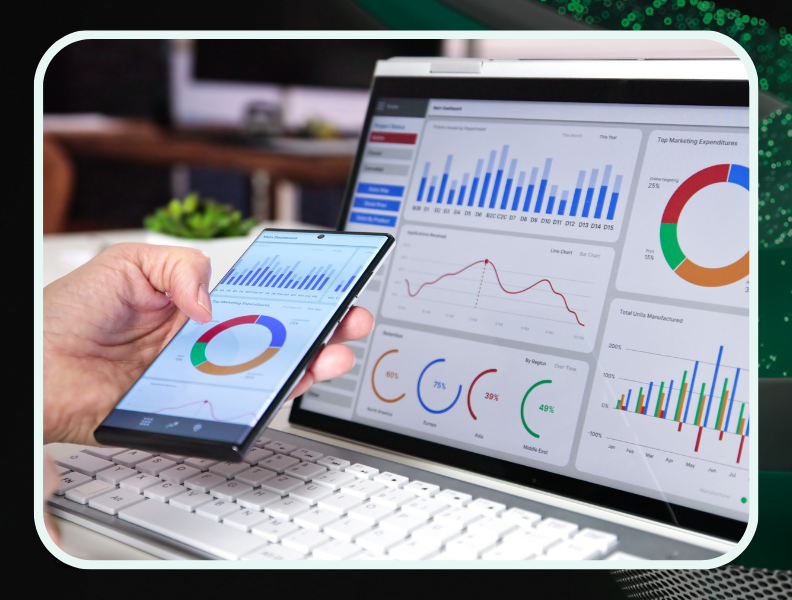
In the age of digital transformation, data-driven decisions have become the foundation for successfully managing and scaling a business. However, implementing such a strategy requires the right organisational culture and tools that ensure data consistency, availability, security, and usability. Microsoft Fabric, an integrated cloud-based analytics platform, meets these needs, enabling companies to implement a data-driven approach at every organisational level seamlessly. Would you like to explore the full range of MS Fabric’s capabilities? We invite you to read the article.
One platform – one approach to data
Microsoft Fabric integrates data processing, analysis and visualisation tools in a single environment. Thanks to the OneLake concept (Data Lake as a single shared data warehouse), the platform eliminates the problem of information silos, which have often hampered the implementation of data-driven strategies in organisations.
Data from various sources – ERP, CRM, IoT, server logs or Excel files – can be uploaded, processed and shared uniformly, allowing you to get a complete picture of your company’s operations.
Organisation-wide democratisation of data
The key element of the data-driven strategy is to make data more accessible. Microsoft Fabric enables the democratisation of data through user-friendly interfaces for analysts and non-technical employees.
Thanks to the integration with Power BI, every user – regardless of their department – can create and analyse reports based on real data. This allows for real-time decision-making at an operational level, without the need to involve IT departments.
MS Fabric as a foundation for advanced analytics
Microsoft Fabric supports the full spectrum of analytics – from classic reports to advanced machine learning models. Analysts can build and train ML models without leaving the platform, thanks to Synapse Data Engineering and Data Science within Fabric. The integrated environment of notebooks, Spark and Python allows you to create advanced analytical solutions that support strategic management decisions, such as demand forecasting, cost optimisation and customer behaviour analysis.
Process automation thanks to Data Factory in Microsoft Fabric
Data-driven also means systematic, cyclical data processing. Microsoft Fabric includes the Data Factory component, which enables the creation of ETL and ELT pipelines using a no-code or low-code interface. Automating the processes of data retrieval, cleaning, and transformation avoids human error, speeds up the time to insight and ensures that data in reports and analytical models is up-to-date.
Security and governance as a foundation of trust
A data-driven strategy requires data availability, security, and regulatory compliance. Microsoft Fabric integrates data governance functions – from data classification to permissions management, audits, and change tracking. This allows organisations to ensure compliance with the GDPR, HIPAA or other industry requirements, while increasing trust in data within the company.
Integration with the Microsoft and Azure ecosystem
Companies using Microsoft 365, Azure or Dynamics 365 can fully exploit the potential of Microsoft Fabric as a central data point. Thanks to native integration with services such as Azure Data Lake, Microsoft Purview or Microsoft Entra ID, Fabric becomes a natural extension of an organisation’s cloud environment. This allows you to build a data-driven strategy seamlessly, without the need to migrate to external tools or change your IT architecture.
Real-time analytics
One of the key aspects of a data-driven strategy is the ability to react in real time. Microsoft Fabric supports streaming data processing, enabling companies to analyse events as they occur. This supports decision-making processes in logistics, sales or customer service, and allows the implementation of alert & recommendation engine systems.
Implementing a data-driven strategy – is it worth it?
Implementing a data-driven strategy is not a one-off project, but a process of transforming organisational culture and data infrastructure. Microsoft Fabric, as a comprehensive data platform, supports this process at every stage: from data integration, through processing, analysis and visualisation, to ensuring security and compliance. This enables organisations not only to manage data effectively, but above all to transform it into real business value.

